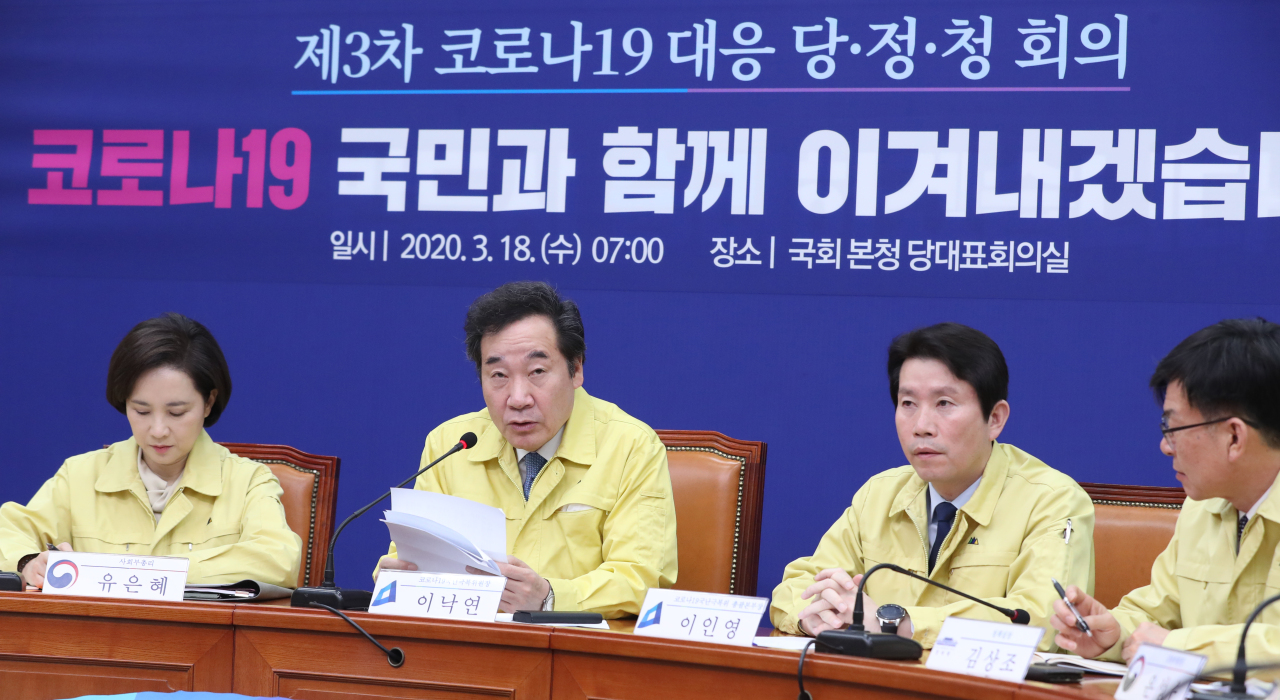 |
(Yonhap) |
The ruling Democratic Party (DP) called on the government Wednesday to consider drawing up another extra budget and come up with bold market-stabilizing and economic measures to fight the new coronavirus.
The National Assembly passed an 11.7 trillion won ($9.44 billion) supplementary budget bill Tuesday to help contain the spread of COVID-19 and minimize the economic fallout of the outbreak.
But the ruling party urged additional and unprecedented steps to tackle the potentially devastating impact on the economy.
"The current economic situation appears to be more serious than the combined damage from the 1997-98 Asian financial crisis, the 2008 global financial crisis and the MERS outbreak in 2015," DP floor leader Lee In-young said during a trilateral meeting between party, government and presidential officials.
"We need to explore new and bold measures as the situation is an unprecedented crisis," Lee said, urging financial authorities to mull further market-stabilizing steps including currency swap deals with global central banks.
Lee Nak-yon, chief of the DP's committee on COVID-19 response, also publicly called on the government to consider a second supplementary budget related to the outbreak.
"We need to brace for the possibility that the outbreak will weigh on economic activity and social life for a long time and people's agony will deepen," he said.
Eun Sung-soo, chief of the Financial Services Commission, said the government will swiftly respond to any market volatility if needed, as it is drawing up contingency plans to stabilize the financial markets.
At the meeting, the participants gave a positive evaluation of some local governments' provision of cash to residents to help ease their economic hardships.
Several city governments, including Seoul and Jeonju, have announced plans to provide "anti-disaster basic income" to the underprivileged to support their fight against the virus.
The government is reserved about the idea of creating another extra budget and introducing a basic income at the national level.
Even if the government draws up another supplementary budget, a parliamentary review would be only possible around May after the country holds parliamentary elections on April 15, political experts say. (Yonhap)








